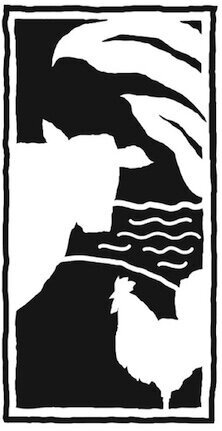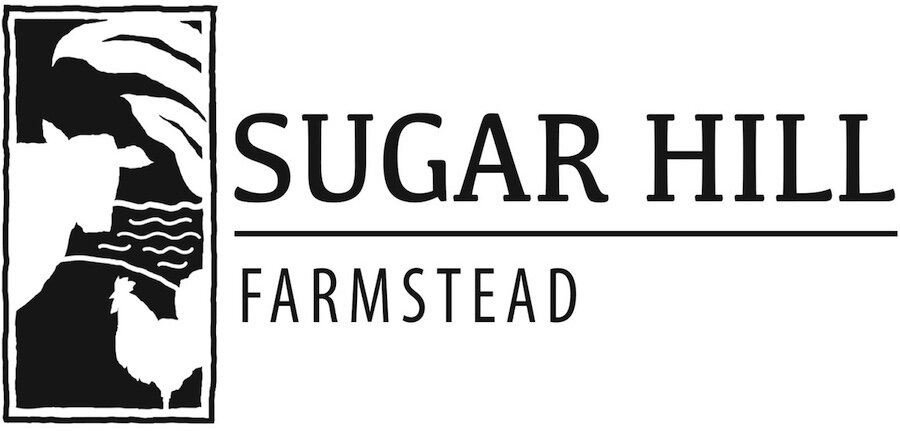4 Reasons You Should Eat Pasture-Raised Meats
Hawaii Island used to produce enough food locally to feed residents. Now, nearly 90% of the island's food is imported, and much of that is factory-farmed meats. There's been a significant decline in the number of farmers and ranchers selling products locally. Products command a higher price on the mainland and Oahu, and the demand is higher, too. So, we're shipping all our great food off the Big Island and shipping in food that isn't nearly as nutritious.
Large-scale factory farms also called CAFO, and feedlots have replaced the family farmer and rancher. These factory farms keep thousands of animals in highly concentrated areas to increase efficiency and produce mass quantities of pork, beef, chickens, turkeys, and lamb. There are many things wrong with factory farms- they destroy the ecosystem, create tons of pollution, and the animals lead miserable lives. Why would anyone want to be a part of that type of food system? We sure don't.
It's why we started our farm, Sugar Hill Farmstead, in the first place. Eating pasture-raised healthy meats that are raised right here in Hawaii is the best thing you can do for your community, your family, and the planet.
Here are 4 reasons you should eat pasture-raised meats.
1. Pasture-raised meat is good for the soil.
Factory farms are toxic wastelands- full of pools of excrement, and because the animals aren't rotated, the ground is devoid of plants.
Pasture-based systems generally utilize a holistic land management approach. This allows for a positive impact on the soil in a big way. Pasture-raised production uses the unique inherent attributes of each animal. When managed correctly, animals offer needed disturbance to the earth and fertilization through their manure.
With holistic management, it is a cyclical approach to the land. The soil feeds the grass, the grass feeds the livestock, and the livestock fertilizes the soil. Regenerative agriculture is recognized as one of the best ways to combat climate change. We now know that regenerative land management with pasture-raised animals sequesters more carbon in the soil than the animals will produce in a lifetime- so it is possible to raise a carbon-neutral cow!
By building robust, healthy root systems in grasses through pasture-raised animals, we also have less run-off into streams, better able to survive droughts and create a healthy foundation for years to come.
In supporting pasture-raised meat production, you are supporting farmers and ranchers dedicated to combatting climate change.
2. Pasture-raised is good for the animals.
Industrialized agriculture made meat production efficient, cheap, and consistent. This method accomplished these goals by ignoring the animals' instinctive behavior. Regenerative agriculture and pasture-based animal management celebrates the animal's natural behaviors and uses them as an advantage.
The production of real pasture-raised animals gives the animals a better life. Pasture-raised animals are also more likely to be raised in family units, promoting better overall health. If you want to improve animals' lives, start by regularly supporting the systems that incorporate pasture-based meat production.
3. Pasture-raised meat is good for the community.
The end of the sugar plantation era in Hawaii displaced jobs and devastated once-thriving little towns. Plantation lands were divided up and sold-off while communities crumbled.
Pasture-raised meat production is part of a positive change that puts people back to work in agriculture in a responsible way. Pasture-raised production provides quality employment opportunities in butchery, shepherding, farming, and opens distribution channels. Putting local people to work within the pasture-based system creates regenerative employment within Hawaii.
When you purchase local pasture-raised meat, you are keeping your dollars in our island community.
4. Pasture-raised meat is good for you.
Animals raised in industrial factory farms live in close quarters where diseases can spread rapidly. Studies conclude that nearly half of the beef and poultry produced in the United States is infected with staph bacteria, which is linked to several human diseases. We also know that there is widespread antibiotic use up until processing in much of the meat consumed. Why would we think that meat from those unhealthy animals would be a nutritious option for our families to consume?
Pasture-raised meats contain higher levels of Omega-3 fatty acids than beef and pork raised in factory farms. Pasture-raised animals also have higher levels of Vitamin-D because they're out in the warm Hawaiian sun.
Making the switch to local pasture-raised meats doesn't have to be complicated. With the Sugar Hill Farmstead online store, we’re making Hawaii Island pasture-raised meats more accessible to residents. We are committed to feeding the people of Hawaii Island only the best pasture-raised meats, so we do not ship off-island. Sugar Hill Farmstead offers bulk beef options with delivery to homes from Honomu throughout Hilo, and pick-up locations in Waimea, Hilo, and Kona. If you are looking for local grass-fed pasture-raised beef, check out our online farm store.
Sugar Hill Farmstead is dedicated to pasture-raised meat on Hawaii Island because we believe Good Food Starts Here.






